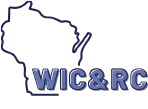Substance Abuse Counselor
Program Overview
The Substance Abuse Counselor (SAC) certification program at Laitinen Academy is designed to prepare professionals for a career in addressing substance use disorders and providing effective, compassionate care. This program focuses on a comprehensive approach to addiction counseling, combining evidence-based theoretical knowledge with practical application.
Course Objectives
- In-depth Understanding of Addiction: Explore the biological, psychological, and social factors that contribute to substance use and dependency.
- Advanced Counseling Techniques: Develop advanced skills in various counseling methodologies that support individual and group therapy settings.
- Integrated Treatment Models: Learn to design and implement integrated treatment plans that address co-occurring mental health and substance use disorders.
- Ethics and Professional Responsibility: Gain a deep understanding of the ethical considerations unique to the field of substance abuse counseling.
Program Length
This intensive program is structured to cover a wide range of topics essential for effective counseling, culminating in 260 hours of instruction followed by a practicum or supervised clinical experience.
Certification
Upon successful completion of the program, graduates will be awarded a certification from Laitinen Academy, recognized as a substantial qualification for practicing as a Substance Abuse Counselor. Graduates are also prepared to meet state licensure requirements, subject to the regulations of their respective states.
Who Should Enroll
- Aspiring substance abuse counselors looking to obtain certification and licensure.
- Health care professionals aiming to specialize or gain comprehensive knowledge in addiction counseling.
- Social workers, psychologists, and other practitioners expanding their expertise in substance use disorders.
Learning Outcomes
- Comprehensive knowledge of addiction science and effective treatment methodologies.
- Proficiency in ethical decision-making and client care management.
- Preparedness for licensure exams and qualifications for immediate employment in various therapeutic settings.
Career Options in Substance Abuse Counselor
Typical pay scale for substance abuse counselor SAC
Substance Use Disorder Treatment Providers, Hospitals, Detox, Residential, Outpatient, Medication Assisted Treatment Clinic (MAT), SAC Programs, Health and Human Services, Criminal Justice.
The pay scale for Substance Abuse Counselors (SAC) can vary widely depending on several factors including geographic location, level of education and certifications, type of employer, and years of experience in the field. Here’s a general overview of what you might expect:
Entry-Level Substance Abuse Counselor
- Starting salaries for entry-level Substance Abuse Counselors typically range from $30,000 to $40,000 annually. These positions often require minimal experience and may accept candidates with a bachelor’s degree or, in some cases, an associate degree coupled with relevant certifications.
Mid-Level Substance Abuse Counselor
- Mid-career professionals, who have gained a few years of experience and possibly additional certifications or a master’s degree, can expect salaries in the range of $40,000 to $50,000 per year. This range can include counselors who have developed specialized skills or are working in settings that require a higher level of expertise, such as inpatient centers or hospitals.
Experienced Substance Abuse Counselor
- Experienced counselors, particularly those with advanced degrees, specialized certifications (like a Licensed Clinical Alcohol and Drug Counselor), or management responsibilities, might see their salaries range from $50,000 to $65,000 or more.
Professional Substance Abuse Counselor
- Senior-level or highly specialized Substance Abuse Counselors, including those who manage large programs or have extensive experience, can earn $65,000 to $80,000 or more. These positions typically require significant expertise and years of experience.
Geographical Variations
- High-cost areas: In regions with a higher cost of living, such as major metropolitan areas like New York City or San Francisco, salaries can be significantly higher to accommodate the increased living expenses.
- Rural areas: In contrast, more rural areas might offer lower salaries but also tend to have a lower cost of living.
Type of Employment
- Private sector: Jobs in private practice or private rehab facilities might offer higher wages compared to public or nonprofit settings.
- Public and nonprofit sectors: These roles may have more limited budgets resulting in lower salaries but often provide more benefits, such as loan forgiveness programs for those working in certain conditions or areas.
Additional Benefits
- Benefits: Full-time Substance Abuse Counselors often receive benefits packages which can include health insurance, paid time off, retirement plans, and continuing education allowances. These benefits can add significant value to the overall compensation package.
Salaries are often influenced by the demand for substance abuse and behavioral disorder counselors, which has been increasing due to a greater understanding of addiction as a medical condition and a move toward treatment over incarceration for drug-related offenses. Always consider the entire compensation package and potential career advancement opportunities when evaluating job offers.
Memberships
International Certification & Reciprocity Consortium IC&RC
IC&RC promotes public protection by offering internationally recognized credentials and examinations for prevention, substance use disorder and recovery professionals. Membership offers Reciprocity World Wide
National Certification Commission for Addiction Professionals NAADAC
NAADAC, the Association for Addiction Professionals, represents the professional interests of more than 100,000 addiction counselors, educators and other addiction-focused health care professionals in the United States, Canada and abroad. NAADAC’s members are addiction counselors, educators and other addiction-focused health care professionals, who specialize in addiction prevention, treatment, recovery support and education.

Approved Curriculums by Wisconsin International Certification & Reciprocity Consortium

